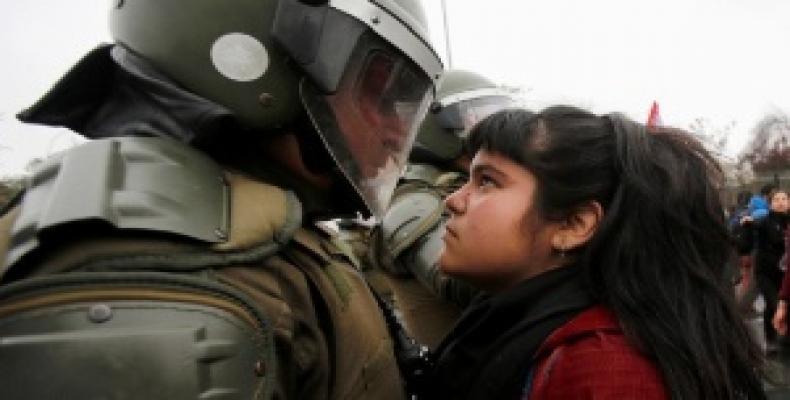Santiago de Chile, November 19 (RHC)-- Thousands of Chileans rallied in major cities across the country on Monday, marking one month since protests over inequality and injustice erupted in the country. Despite a series of concessions, protesters have promised to stay in the streets until the government meets specific demands for systemic change and improved social conditions.
The protests initially started in mid-October when secondary students in the capital Santiago protested against a metro fare increase. Since then, however, the demonstrations have mushroomed, with protesters taking to the streets against the country's political-economic model and the police crackdown on the demonstrations. The key demands of protesters include ensuring there's a Constitutional Assembly, higher pensions, wages, affordable healthcare and education.
Marches and rallies continue on a daily basis and some have rivalled mobilizations in the late 1980s against General Augusto Pinochet's dictatorship. Thousands of people were killed and forcibly disappeared for political reasons during Pinochet's 1973-1990 rule.
An Inter-American Commission on Human Rights team arrived on Monday for a four-day visit. A team from the Office of the United Nations High Commissioner for Human Rights will conclude its 24-day visit on Friday.
At least 24 people have died as a result of the unrest, including five killed by police and military forces during a state of emergency in October. Over the past month, more than 6,000 people have been detained.
The National Human Rights Institute has filed 58 legal actions against authorities, mostly police, for alleged sexual violence, and 246 for torture and other cruel treatment. The institute has also documented 217 cases of hospitalisation for eye injuries, roughly 75 percent of which were caused by projectiles.


